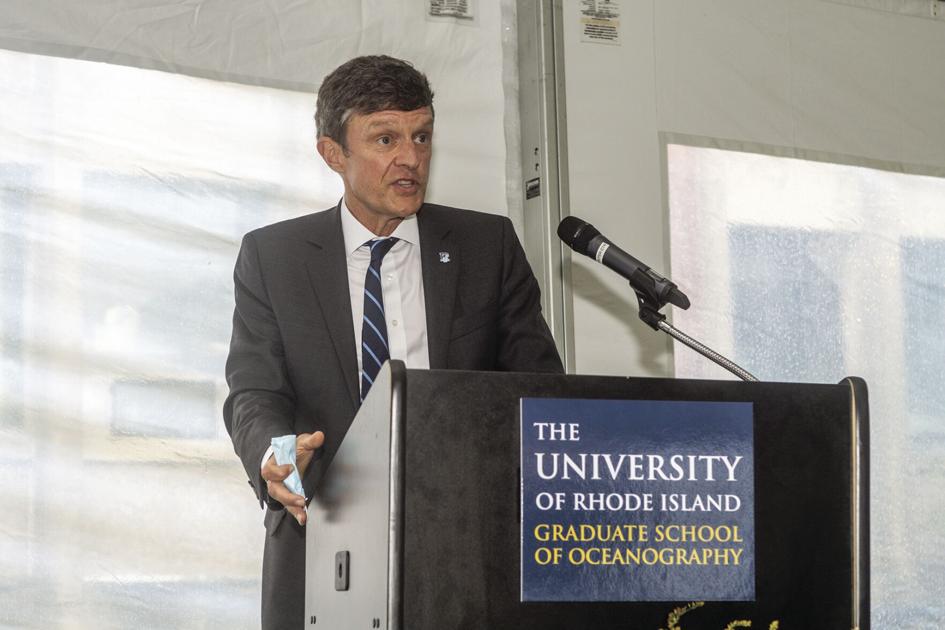University President Marc Parlange speaks at the Coastal Resources Center’s 50th anniversary celebration. PHOTO CREDIT: Michael Derr, The Independent.
The University of Rhode Island’s Coastal Resources Center celebrated its 50 year anniversary this month.
The Center, located on the Narragansett Bay Campus, works with communities worldwide to address issues dealing with climate change and coastline management.
To celebrate the anniversary, the Center held a celebratory kickoff event on Sept. 9 on the Bay Campus. The event was attended by both of Rhode Island’s Senators, Jack Reed and Sheldon Whitehouse.
J.P. Walsh, the director of the Coastal Resources Center, remarked on the significance of this event for the Center.
“It was a celebration of both our history but also some discussion and reinforced our energy for thinking about the future and what we need to do to tackle the world’s problems,” he said.
The Center works internationally, with offices and projects going on in many countries including Ghana, Malawi, Indonesia and the Philippines.
Walsh emphasized the significance of the role that the Center plays in implementing research to help coastal communities around the world.
“URI has some great researchers studying the science of all this, but if you want things to actually be implemented, you have to work with people and go into communities and understand what they need and want,” he said.
According to Walsh, currently the Center is working on a project in the Philippines along with the U.S. Agency for International Development which aims to regulate fishing and reduce illegal fishing.
Walsh said that in the future, many of the Center’s plans will revolve around climate-change-related issues, such as rising sea levels.
“We don’t like to tell people what to do, but I see us continuing to inform and educate people on the science of climate change and to create a plan to move forward,” Walsh said.
Jennifer Critcher, the CRC’s assistant director, also said that in the future the Center may work on environmental concerns such as reducing single-use plastics, combating food insecurity and creating sustainable fisheries.
She described the process of choosing what projects to work on and how finding a new project isn’t always easy.
“We’re a soft money center, so rather than receiving direct money for our projects, sometimes we do fundraising,” she said. “Additionally, part of our work is to monitor places like grants.gov to see what coastal opportunities are out there. The process is not necessarily picking and choosing the projects we work on, sometimes it’s simply based on the federal opportunities that we’re given.”
Current master’s of environmental science management fellow at the CRC Abbey Greene shared how the Center has impacted her as a student.
“I came in as a strong advocate for oceans, and CRC deepened that feeling,” she said. “Because of it, I feel a lot more educated and prepared on ocean issues.”
Walsh said that the staff of the CRC is “incredible,” and they are a big reason why the Center is able to do its work with communities worldwide.
“The CRC has a lot of passionate staff fighting for equitable coasts both nationally and internationally,” she said.
Greene strongly encouraged any student who is interested in working with the CRC to apply for a position.





